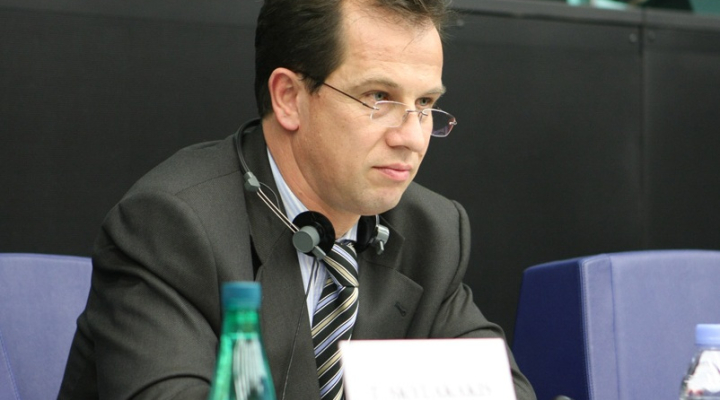The role of SMEs in the field of energy efficiency and renewables
The event was hosted by the SME Union, working under the aegis of the European People’s Party and its partners, among others the Employment and Social Affairs Committee of the EP.
Within the global energy use, residential and commercial buildings represent a substantial share: According to the European Commission estimates, buildings are responsible for around 40% of the EU energy consumption and around 36% of EU CO2 emissions. In the same time, the activities related to buildings represent a considerable part of the EU economy, respectively about 9% of EU GDP and 7-8% of EU employment.
For this reason, investing in the improvement of the energy performance of buildings is not just a cost-effective way of fighting against climate change, but can also help create new job opportunities for SMEs, particularly, but not only, in the building and raw material and equipment manufacturing sector.
This is especially true in the case of Central, Eastern and South-Eastern European countries, either present Member States or Candidate Countries for accession given that that energy efficiency in these countries is considerably lower in comparison to other older EU Member States.
In order to bridge the energy efficiency gap between the new and old(er) Member States, much more substantial investment is needed in the latter countries, demanding huge amounts of resources that these countries do not have, especially in the current economic situation.
In his speech, Sógor Csaba, Member of the European Parliament (MEP) on behalf of the DAHR, highlighted that the efficient use of energy resources is directly linked to the overall competitiveness of a country’s economy, the promotion of the environmental sustainability and to the achievement of the EU’s "20/20/20" climate/energy targets.
The low (level of) energy efficiency in Romania is valid for the industrial sector as well as the private housing one, as energy efficiency was not a criterion taken into consideration in the development of new industrial or residential establishments during the period of communism.
Sógor Csaba saluted the initiative of the REGIONAL ENVIRONMENTAL CENTER and of the GLOBAL ENVIRONMENTAL SOCIAL BUSINESS organization to promote the project setting up a Revolving Fund Programme in this field that would enable the financing of building energy efficiency measures in Central, Eastern and South-Eastern member States, as well as candidate countries.
The Hungarian MEP from Transylvania highlighted those particularities of these regions that may pose significant barriers in the implementation of building rehabilitation works: the fact that homes are mostly privately owned and that a large proportion of the people living in non-refurbished homes are in the low- income social category. Because of these reasons, banks are not willing to finance such measures.
Sógor Csaba also stated that the project would offer a much-needed support in the housing sector of these countries, as former or current financing schemes for the improvement of energy efficiency of buildings did not prove to be sufficient. Based on the example of Romania, he declared that the state is directly supporting such measures and not by loans, but the allocated funds will never be sufficient, (and) the state and its municipalities can never afford 2/3 of the rehabilitation costs of 85.000 apartment blocks in Romania.
- Substantial energy savings in the housing sector would - on the one hand - lead to cuts in expenditure for households, and to significant environmental and social benefits. On the other hand, the other effect of these investments would contribute to creating new jobs new job opportunities for SMEs, in the housing and related production and services sectors, much needed in the current crisis – concluded Sógor Csaba.











